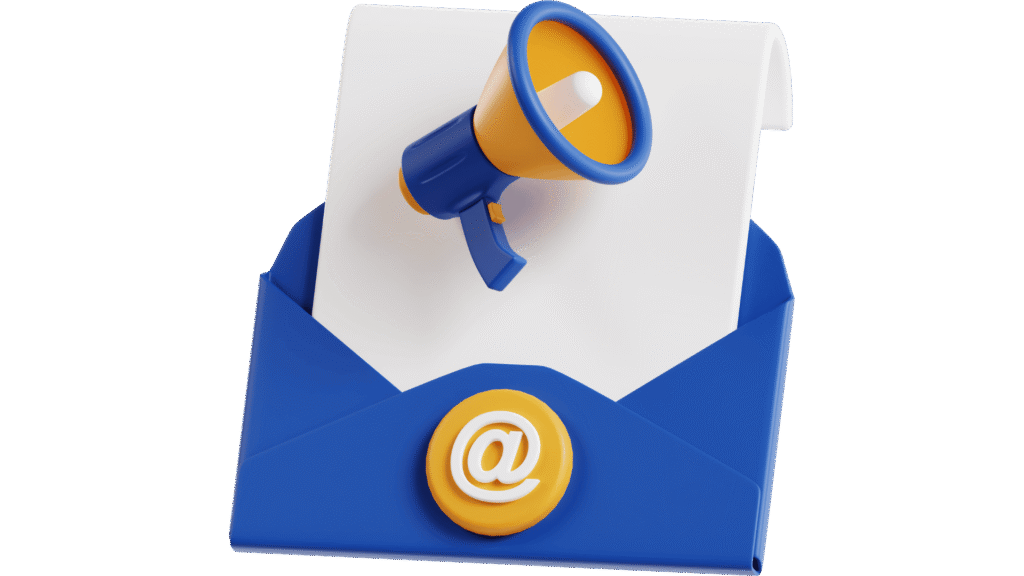
The Ultimate Guide to Email Marketing
Introduction
Email marketing remains one of the most effective digital marketing strategies, delivering an impressive $42 ROI for every $1 spent. At SeedWebMedia, we help businesses harness the power of email to nurture leads, boost sales, and build lasting customer relationships.
1. What is Email Marketing & Why Does it Matter?
Email marketing involves sending targeted messages to a subscriber list to promote products, share news, or nurture leads.
Why Email Marketing Works
✅ High ROI – Most cost-effective digital channel
✅ Direct Access – Messages land in the inbox (no algorithms)
✅ Personalization – Tailor content to individual preferences
✅ Owned Audience – Unlike social media, you control your list
2. Benefits of Email Marketing
✔ Boosts Sales – 59% of marketers say email drives revenue
✔ Builds Relationships – Regular touchpoints increase loyalty
✔ Drives Website Traffic – Include links to blogs/products
✔ Measurable Results – Track opens, clicks, conversions
3. Types of Email Campaigns
| Campaign Type | Purpose | Example |
|---|---|---|
| Welcome Series | Onboard new subscribers | “Thanks for joining! Here’s 10% off.” |
| Promotional Emails | Highlight sales/discounts | “Black Friday Sale – 50% Off!” |
| Newsletters | Share updates & valuable content | “Weekly Industry Insights” |
| Abandoned Cart | Recover lost sales | “Forgot something? Complete your purchase!” |
| Re-engagement | Win back inactive subscribers | “We miss you! Here’s a freebie.” |
4. Building an Email List the Right Way
Ethical List-Building Strategies
- Lead Magnets (Free ebook, discount, webinar)
- Website Pop-ups (Exit-intent or timed)
- Social Media Promotions (“Join our list for exclusive tips”)
- In-Person Sign-Ups (Events, retail stores)
🚫 Avoid These Tactics
- Buying email lists (violates GDPR/anti-spam laws)
- Hidden opt-ins (always get consent)
5. Crafting High-Converting Emails
A. Subject Lines That Get Opens
✔ Urgency: “24 Hours Left – 50% Off Ends Soon!”
✔ Curiosity: “You won’t believe what we just launched…”
✔ Personalization: “John, your custom recommendation inside!”
B. Email Copy Tips
- Keep it concise (50-125 words ideal)
- Use a conversational tone (“Hey there!” vs. “Dear Valued Customer”)
- Clear CTA (“Shop Now,” “Download Your Guide”)
6. Email Design & Optimization
Mobile-Friendly Essentials
- Single-column layout
- Large buttons (min. 44×44 pixels)
- Font size 14px+
Visual Best Practices
- Images: Use 1-2 (don’t overload)
- Alt Text: Describe images for disabled users
- Brand Colors/Fonts: Consistent with your website
7. Automation & Segmentation
Automation Examples
- Welcome Drip: 3 emails over 1 week
- Birthday Emails: “Here’s a gift for you!”
- Post-Purchase Series: “How to use your new product”
Segmentation Ideas
- Demographics (Age, location)
- Behavior (Pages visited, past purchases)
- Engagement Level (Active vs. inactive)
8. A/B Testing for Better Results
Test one element at a time:
📧 Subject Lines (“Free Shipping” vs. “Your Order is Almost Ready”)
📧 Send Times (Tuesday 10 AM vs. Thursday 3 PM)
📧 CTA Buttons (“Buy Now” vs. “Get Yours Today”)
9. Email Marketing Metrics to Track
📊 Open Rate (Avg: 20-30%) – Are subject lines working?
📊 Click-Through Rate (CTR) (Avg: 2-5%) – Is content engaging?
📊 Conversion Rate – How many took the desired action?
📊 Bounce Rate (<2% ideal) – Clean your list regularly
10. Best Email Marketing Tools
🔧 Mailchimp – Beginner-friendly
🔧 Klaviyo – E-commerce focus
🔧 ActiveCampaign – Advanced automation
🔧 HubSpot – CRM integration
11. Common Email Marketing Mistakes
❌ Sending Too Frequently (Annoy subscribers)
❌ Ignoring Mobile Users (50%+ opens are on mobile)
❌ No Unsubscribe Option (Legal requirement)
❌ Overloading with Images (May trigger spam filters)
12. Future Trends in Email Marketing
🔹 AI-Powered Personalization (Dynamic product recommendations)
🔹 Interactive Emails (Polls, quizzes, “Shop Now” buttons)
🔹 Dark Mode Optimization (40% of users enable it)
🔹 Privacy-First Strategies (Apple’s Mail Privacy Protection)
Conclusion
Email marketing is a powerhouse for driving sales and engagement. By following best practices and leveraging automation, businesses can achieve consistent growth.
